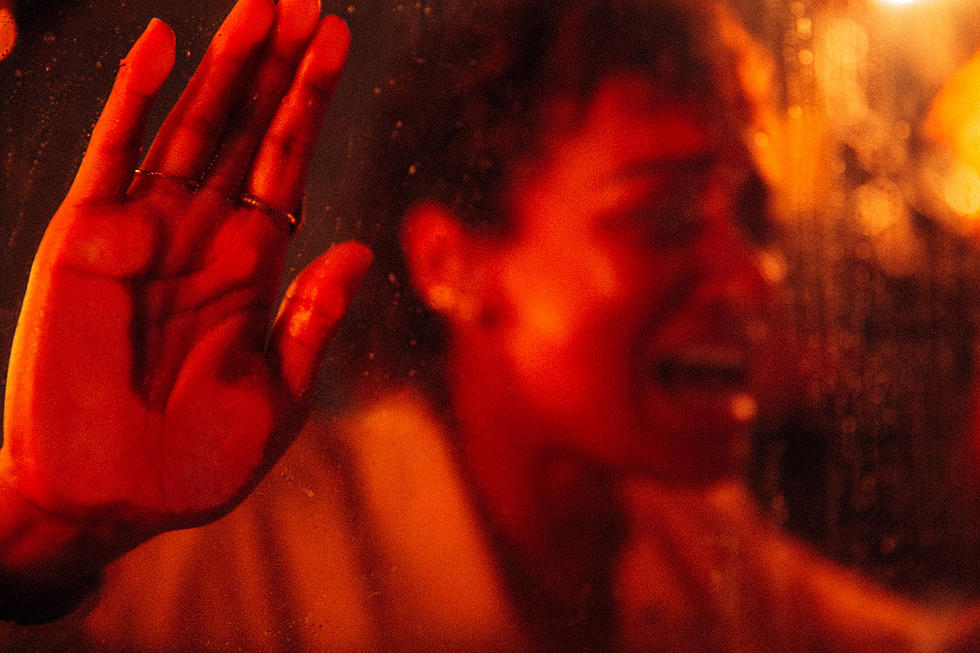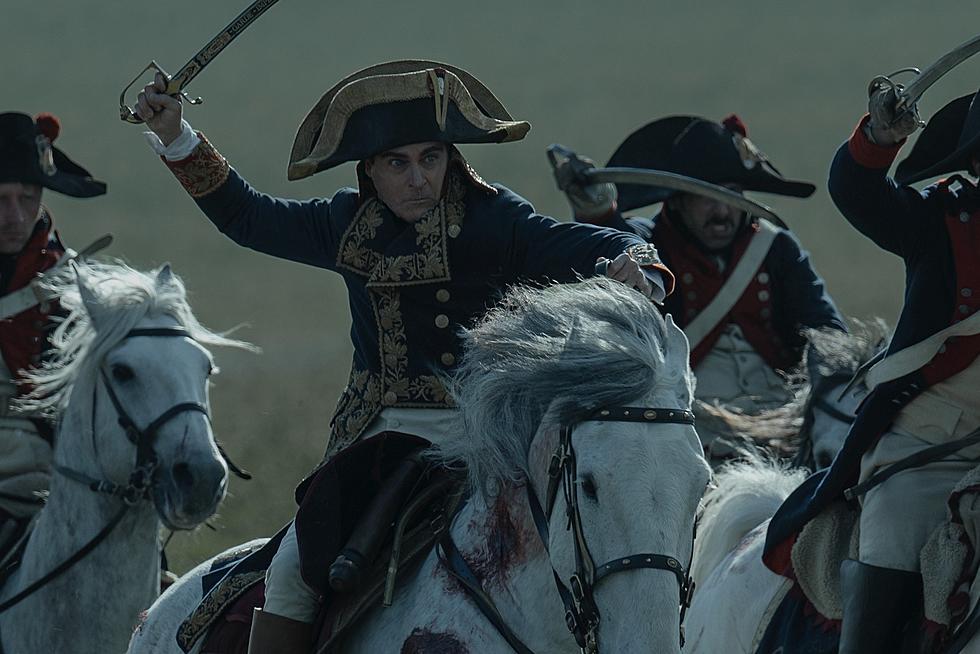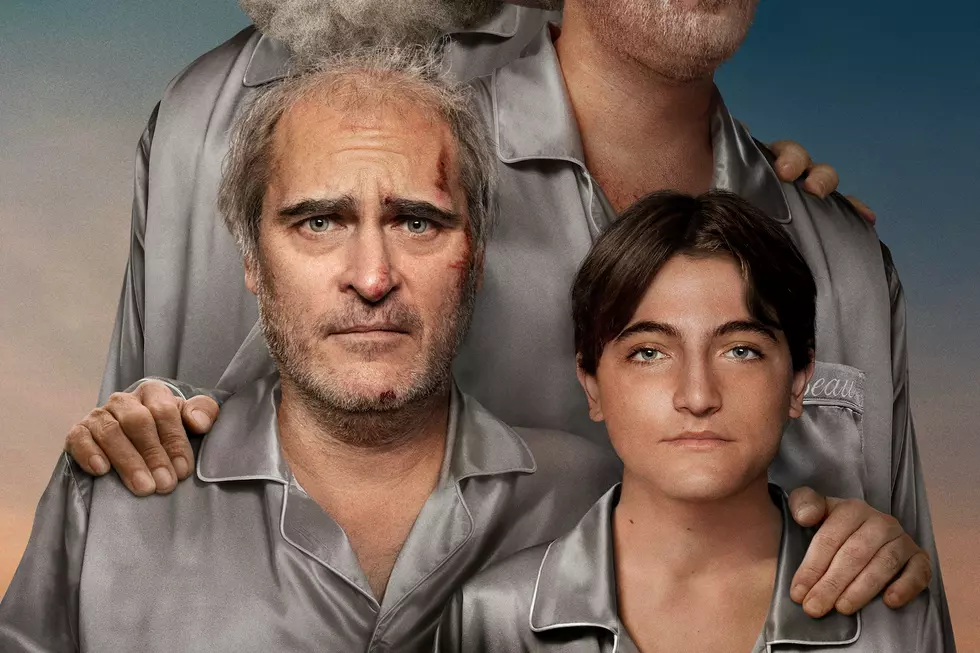
‘Beau Is Afraid’ Captures Living With Anxiety Better Than Almost Any Movie I’ve Ever Seen
On the morning I saw Beau Is Afraid, my wife’s keys went missing. This happens sometimes; she tends to casually drop her things in random spots when she comes in the house, then not remember where she left them when she is ready to leave again. (I keep my own set of keys in my pocket at all times so I never have to worry about remembering where I left them. When I put my pants in the laundry, I take the keys out of the old pair and immediately put them in the new pair, before I ever put them on.)
My wife was already out the door when she realized her keys weren’t in her bag. It was past the time she normally left for work in the mornings, and so the whole family began frantically scouring the kitchen and the living room; inside the couch, on the counter, under the table, in her purse, under the comfy chair, in her other purse. No luck. Eventually, my wife gave up; she had to leave at that moment or she’d be late. Luckily, I work from home. I could let her in when she came back. No big deal.
Or maybe a huge deal. It was only after she left that I realized why the keys could not be found. She hadn’t haphazardly dropped them somewhere on her way into our place; she had given them to our older daughter the day prior while we were playing outside with some neighbors so she could run in to use our bathroom. The last time I saw the keys was when I came inside a short while later to check on her. My daughter had left the door wide open, with the keys still in the lock.
READ MORE: The Best Movies of the Year
I couldn’t remember seeing the keys again after that. What if we had left them in the lock overnight? What if someone happened along and grabbed the keys? What if someone now had all our keys? This was way worse than simply misplacing them. Now someone — anyone — could have access to our home. Even as I frantically continued to search, I began to imagine someone unlocking our door in the middle of the night, wandering in, rifling through our stuff, taking whatever they wanted. Also, I needed to find a locksmith. How fast, I wondered, could I get a locksmith over here? And why didn’t I have a spare set of keys for this kind of situation? We should get one.
Like I said, this all transpired the morning before I saw Beau Is Afraid. As its title suggests, this film is an epic about anxiety. I had a general sense of that before I saw the movie, which comes from Ari Aster, the filmmaker behind the recent cult horror hits Hereditary and Midsummer. What I did not know before I saw the movie is that the inciting incident that sets off the title character on his odyssey of fear and self-loathing would be … a lost set of keys.
That get left in a door and are then stolen.
Or at least that is what Beau (the chameleonic Joaquin Phoenix) believes. You see, Beau has overslept for a flight. The night before, he was kept up by a neighbor who incorrectly blamed him for blasting noisy music. (Beau was laying quietly in bed the whole time, trying to sleep.) The neighbor retaliates with music of his own. Too afraid to find and confront the neighbor who wrongly leveled the noise complaint, Beau plugs his ears and goes back to bed — and then doesn’t hear his alarm go off the next morning.
Thus begins a mad dash to pack his bag and race to the airport. When Beau is halfway out the door, he realizes he’s forgotten his dental floss. (What if he didn’t floss for two days? I mean, can you imagine the gingivitis implications? How fast do teeth start to fall out if you don’t floss every day? Can you die from gingivitis?!?) Somehow, in the time it takes Beau to race from his front door to the bathroom and back, both his keys and his suitcase disappear. While there’s no witnesses to the crime, Beau fears the worst: The neighbor who was pissed about all the noise stole them.
That, in a nutshell, is what Beau is about: Fearing the worst. I’ve read the film compared to a panic attack, but I’ve had many panic attacks in my life, and except for one brief sequence that takes place in a dimly lit attic, Beau Is Afraid didn’t remotely remind me of any of them. Panic attacks — at least as I experience them — are sudden and intense. They strike out of nowhere; one minute you’re perfectly fine, maybe even happy, and the next you’re gripped by tightness in your chest, sweaty palms, and a queasy stomach. Mine are always accompanied by a racing heart rate, like I just ran a marathon.
That’s not Beau Is Afraid. This film is not sudden; its three hours proceed gradually and above all cautiously. (How else would a guy who is afraid proceed?) Aster doesn’t really try to jolt the viewer out of their seat; you can see many of his plot twists coming, and (again, with the notable exception of that attic scene) it’s not about trying to make your heart race out of nowhere. Instead, Aster seems far more interested in giving the viewer a taste of what it is like to live with anxiety for longer than a few brief moments. He traps you for three full hours inside Beau’s tortured headspace, where the worst thing that could possibly happen inevitably does.
For example: Beau’s stolen keys quickly become an even bigger issue after he needs to leave his apartment to get some water. (He took a new anxiety medication that a quick Google search tells him might kill him if he doesn’t take it with water. And the water in his apartment is out.) Beau leaves his apartment building door slightly ajar and races to the store across the street, but his credit card is declined and he doesn’t have enough change for a bottled water. While Beau scrounges through his loose change, all the vagrants and tattooed weirdos who hang out on the corner outside his building sneak in through the propped door. Then Beau spends the rest of the day and the following night watching through his window as his apartment is soiled and ruined by strangers.
Someone who’s spent time in therapy trying to get control of their anxieties (like, y’know, me) can tell you about a mindset called “catastrophizing,” a psychological term to describe some people’s tendency (like, y’know, mine) to immediately jump to the worst possible outcome of any situation even if there is no rational reason to expect disaster. So when my wife’s (or Beau’s) keys vanish, we don’t necessarily work to find them, we begin to fantasize about the terrible things that are now inevitably going to happen if we don’t find them.
If there is an explanation for the unexplainable events that befall Beau in Beau Is Afraid, this is probably it. What we are witnessing is not a panic attack or a nightmare, or the death dream of a man who gets hit by a van; it’s three hours inside the mind of a catastrophizer. A lifetime of personal experience tells me that Beau Is Afraid is at its best when capturing that sense that a minor problem is moments away from metastasizing into potentially life-ending tragedy. Could most of the stuff that befalls Phoenix’s character in Beau Is Afraid happen in real life? Almost none of it could. But the unlikelihood of something happening has never stopped a catastrophizer from worrying about it anyway.
No wonder some viewers react so negatively to the experience of watching Beau Is Afraid. It plays like the expression of a cognitive disorder that people spend years seeing mental health professionals or taking medication to alleviate. If you don’t have first-hand experience with that disorder already, it can get a little overwhelming. Take it from me. But Beau Is Afraid’s commitment to capturing the sensation of catastrophizing is truly remarkable; especially since a catastrophizer would surely anticipate and dread an audience revolt if they told too much truth in their movie. (And by some accounts, that’s exactly what’s happening!)
(Oh and if you’re wondering about my wife’s keys: About 10 minutes after she had left for work I found them. It turned out I had taken them out of the door when I came inside; I’d put them in my pocket with my own keys. So neurotically keeping my keys in my pants at all times inadvertently led to me misplacing my wife’s keys. Whoops. There may be a lesson in there somewhere.)

The Weirdest Animated Movies Of All Time
More From Mix 97.9 FM










